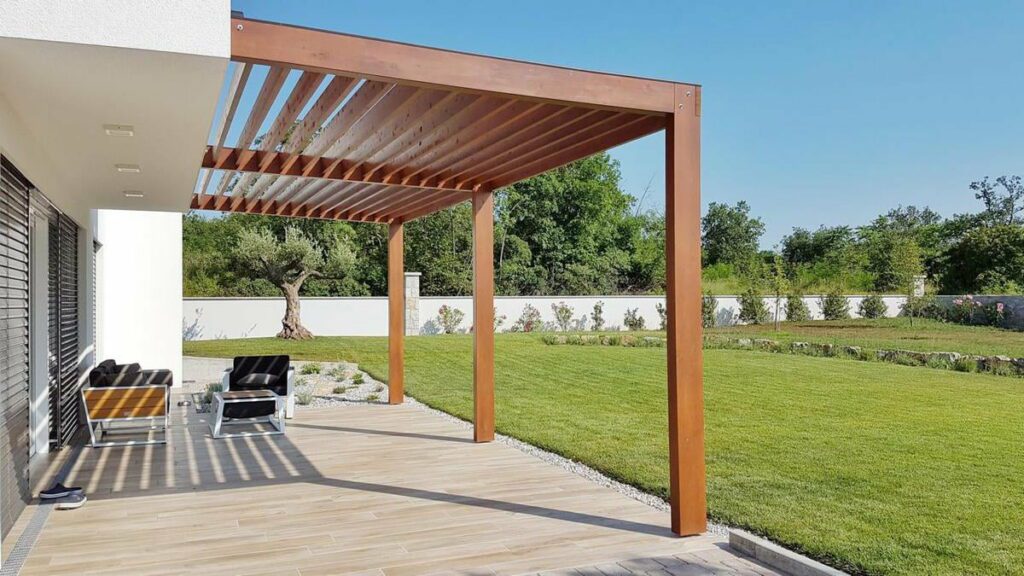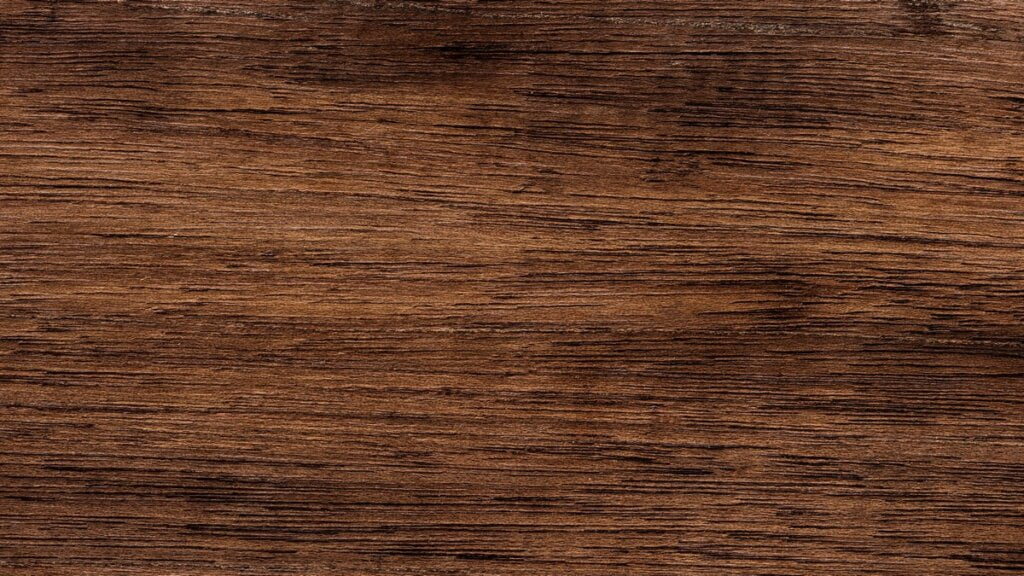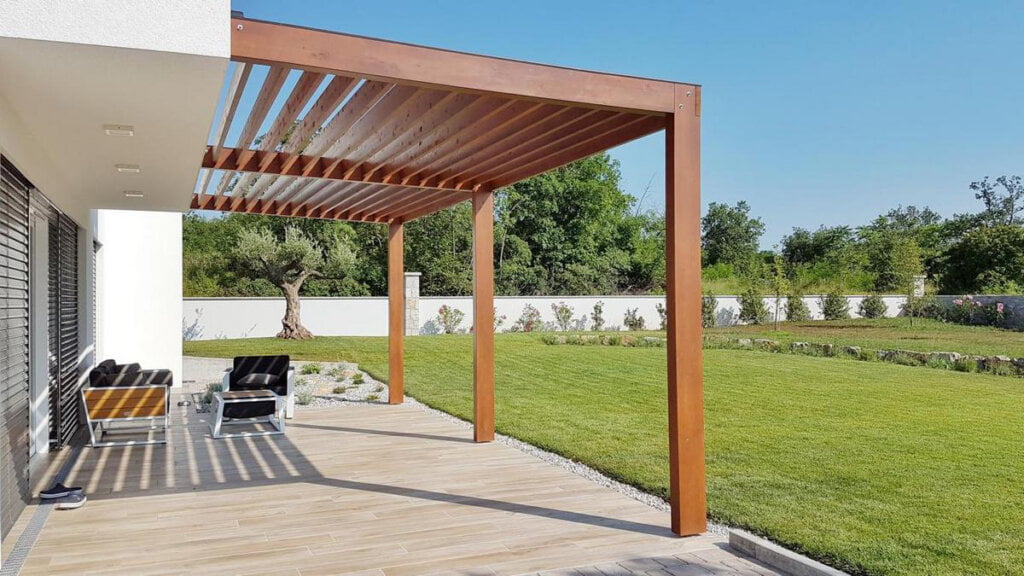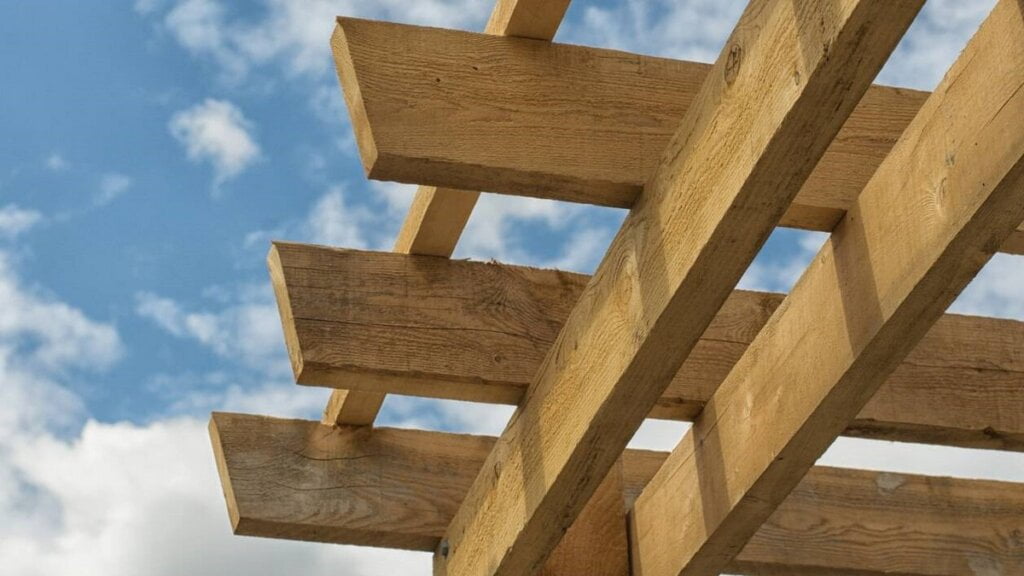
What is the Best Timber for Your New Pergola?
Our climate is perfect for both outdoor entertaining on the weekends and relaxing after a long day. However, as it becomes hotter, a touch of shade from a timber pergola can keep the worst of the heat from spoiling your good time.
Adding a timber pergola to your home can enhance your family’s enjoyment of summer, creating a space for friends and family to come together on those long afternoons and evenings.
The team at Narangba Timbers can show you the best timber for your pergola, including the benefits of locally sourced timber.
Contents
What wood should I use for my timber pergola?
You have two fundamental options when choosing the wood to build your pergola. You could build a hardwood or a softwood pergola.

Hardwood timber pergola
Hardwoods are produced by angiosperm trees that reproduce using flowers and have broad leaves. Hardwoods have a more complex structure than softwoods and are often grow much slower as a result.
As the name suggests, the wood from hardwood trees is generally harder than that of softwoods. As such, any hardwood from Narangba Timbers is ideal for a pergola. We stock Class 1 and Class 2 hardwoods, which provide the best durability available.
Native hardwood timber species that are ideal for your timber pergola include:
- Ironbark: A red timber with a durability rating of 1.
- Merbau/Kwila: A brown timber with a durability rating of 1.
- Spotted Gum: A mixed colour timber with a durability rating of 1.
- Blackbutt: A blonde timber with a durability rating of 1.
We also carry combination timbers called “Mixed hardwoods of high structural strength.”
While different hardwoods have different natural colours, you can stain or paint them to your own personal taste.
Benefits of using hardwood timbers for your pergola
- Hardwood is strong.
- Hardwood lasts for a long time, especially if you choose a Class 1 timber.
- Hardwood is easy to maintain.
- Hardwood is available in a wide range of colours and finishes.
- Hardwood boasts a higher resistance to fire than softwood.

Softwood timber pergola
Softwood is usually wood from gymnosperm trees, such as pines and spruces. Australia has many native softwood species – like celery top pine, white cypress and hoop pine – as well as non-native species like, radiata pine and slash pine.
Softwood timbers form a large percentage of the timber that we use, as the trees from which they come grow quickly and are easily renewable. Treated variants are very hardy and are an affordable solution for structural projects, like pergolas.
Benefits of using softwoods for your pergola
- Softwood is lightweight and easy to work with.
- Softwood is generally less expensive than hardwood.
- Softwood more readily absorbs adhesives, finishes and preservatives.
- Treated softwood is very durable, resistant to insects, fungal attacks and decay.
What kind of timber pergola should I build?
Many of the DIYers who come into our Brisbane location are undertaking their first project. We recommend starting with a simpler project, like a pergola, which has less pressure associated with it. Pergolas are both simple and attractive – and a mistake won’t cost you too much! They can provide an alfresco living area or simply brighten up your garden.
Two popular types of timber pergolas, which are both functional and straightforward to build, are decorative garden pergolas and alfresco pergolas.

Decorative garden pergola
Perhaps the easiest to construct is the garden pergola. Although pergolas are now used to frame roofs over alfresco living areas, they were originally designed simply to provide structure for climbing vines and plants. If you have a garden with a small nature nook, a pergola can make a beautiful and peaceful “gateway” to a soothing sanctuary. You can make your pergola in many different shapes. While they are a structural build, they don’t really have to hold a lot of weight and a few mistakes won’t cause injury or embarrassment.

Alfresco living pergola
Whether you’re looking to unwind in a convenient oasis that’s right on your doorstep or you just want a bit more shade for those afternoon barbeques, alfresco pergolas turn any patio or deck into a livable space. The best thing about these types of pergolas is that you can be flexible with their design, mixing and matching different colours and materials.
While this project may be a bit more demanding, enjoying the fruits of your DIY project every day is a feeling you can’t beat. That’s especially true if you can do it simply by basking in the afternoon sun with a cool beverage in hand!
Choosing the best wood for your timber pergola
The best timber for your new pergola depends on your personal taste and budget.
Here at Narangba Timbers, we have a wide selection of both hardwood and softwood. Plus, our experienced team members have the knowledge to help you make the right decision for your home pergola construction project
Give us a call on 1300 477 024 or contact us online. Before you know it, you’ll have built something special.